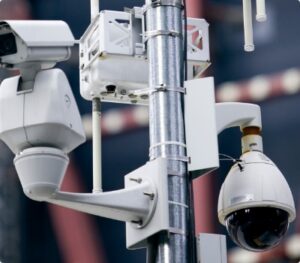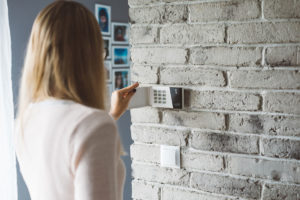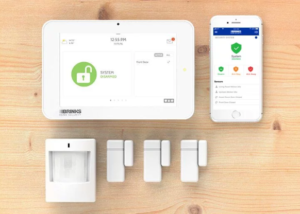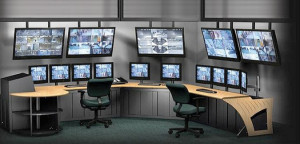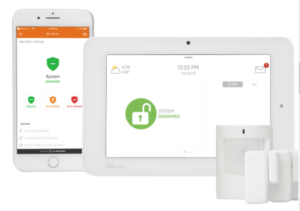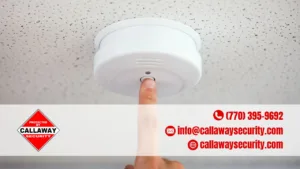Why do I need Wireless Home Security?
Installing wireless security in general, whether in your home or at a workplace, actively deters criminals from seeing that you have visibly functional camera and such in place to record all events that occur in and around your home. Even when used to monitor staff during working hours, some wireless cameras actually allow wireless connectivity with a Wi-Fi monitor. This enables the retrieval of all monitory and recording footages to be transferred from your security camera in real-time.
Of the broad range of wireless home security installations and additions, all provide the same rudimentary purpose: to keep your mind at peace when outside without fear of your home being burgled and looted while you are away.
When observing the crime rates in the year of 2010 alone, according to the Federal Bureau of Investigation (FBI), over two million instances of home invasion and burglary occurred in the US. Totaling to a financial loss of $4.5 billion in stolen property, over three quarters of the two million cases took place in residential homes!
These burglary and home invasion statistics are quite terrifying on their own, but matched with the 2012 report, wireless home security is the obvious remedy.
In 2012, the FBI reported that a robbery occurred every 90 seconds while a burglary happened every 15 seconds! Accompanying this are statistics that portray a murder happening every 35 seconds, a violent crime every 26 seconds, and a case of forced entry occurring every 28 seconds.
Now in 2015, these crime rates remain somewhat unchanged or increased in some cases according to the FBI’s latest reports. With that in mind, it sounds about the right time for you to be looking into obtaining an effective and highly deterrent wireless home security system.
Robbery, Home Invasion and Burglary. What is the difference?
As classified by the FBI, a robbery involves a violent crime involving either the attempt or the actually taking of valued property from a person by means of force, violence or threat. Most importantly, a robbery classification requires the victim to be put “in a state of fear.”
As for home invasion and burglary, home invasion entails the stealing of any valued property from a person’s home while the person is present in the home. Burglary, on the other hand, is when the same event occurs and property is taken while no persons are at home.
Regardless of the crime classification, robbery and home invasion can and often do include extreme cases of violence where the victims are hospitalized or worse. This excessive violence is more likely to occur in an unprotected home due to the lack of witnesses and your home being a private area where there is a lack of visibility to the public.
In addition to the physical damage caused, the aspect of psychological damage is just as damaging, if not worse. Being attacked in a place that you have always felt safe can do some serious psychological harm causing the victims to be fearful in their own homes.
How can I avoid these kinds of crimes happening to me?
According to statistics, over 200,000 homes are burgled each year in the US, the average financial loss is estimated at just over $2,000 per crime, and homes without security systems in place were discovered to be up to 300% more likely to be the victims of such crimes. With these additional reports, it is about time you looked into home security!
The incorporation of the wireless home security can change a vulnerable household into a securely protected fortress with many layers of defence. From constant video feeds from carefully concealed cameras to motion sensors spread throughout the most at risk areas of your home, the more security in your home, the less likely you will ever have to experience such damaging criminal activity.
As these systems are widely accessible in our modern day, different home security systems are either easier or more difficult to install, but begin providing you with the security you need immediately. The most important aspect is deciding upon the type of home security system you want to have in place, whether a wired or a wireless system would be more suitable for your home and all the differences between the two.
Wired Home Security Systems: The good, the bad, and the ugly features
The most common wired home security systems feature camera use and sensors being installed on all the doors and windows of your home, which are then all wired back to the security system’s main panel. Not as advanced as a wireless system, a wired system consists of equipment that is cheaper to purchase than its wireless counterpart.
Wired by name and by nature, some wired home security system installers attempt to obscure the wires, whereas most installers leave the wires bare and fairly visible. Badly placed wires can even present potential tripping hazards!
More difficult to install, wired home security systems sometimes try to hide the wires under the baseboards and carpets in your home to decrease visibility. With the more complex installation procedure, the installation costs are more expensive because you will require a professional to install it all.
With the potential for the addition of motion sensors to the system’s security cameras, wired security systems require data cables and the consistent supplementation of power to transfer the data received by the cameras and sensors to the monitor recording all the footage.
Once the cameras and sensors are placed, due to their far-reaching cable usage, they are very difficult to move or reposition without disrupting all the wires. This alteration may end up costing another installation fee if a non-professional attempts this and fails.
With the good and the bad out of the way, here is the unfortunate ugly side of using a wired home security system in your home:
They can be tampered with and damaged easily.
As explained, the installation of sensors and cameras can and do act as deterrents to criminals, but due to the exposure of the security system’s wires, the criminals can simply put a mask on and cut the wires. As thieves are becoming ever so smarter when it comes to home security, a good burglar will certainly have the knowledge required to bypass a wired security system by taking advantage of this weakness.
Wireless Home Security Systems: The True Burglar deterrent
Unlike their wired counterpart, wireless home security systems come with a vast number of advantages and only few downsides.
To begin with the most important feature, they are wireless!
As the most popular type of home security system, these wireless security systems are mobile, easy to set up, and provide much higher security due to their capacity for concealment. With ease of installation, no high expenses are required like in the case of wired home security systems. No wires under the carpets and no drilling or hardwiring required!
Lacking wires in almost every area, a wireless security system can be positioned and repositioned repetitively pretty much everywhere in range of the their wireless receiver. With such portability, wireless systems can also be simply transferred when and if you should ever decide to move house.
Placing your cameras and sensors where you choose is possible!
Without the need for electrical wiring, wireless security system run exclusive off of batteries and can be placed the ceiling, the walls, the roof, or even on the floor if you wish! The opportunities and potential is ever-expanding.
Speaking of ever-expanding, wireless home security systems can be continuously expanded and installed by yourself over time, steadily improving upon your security system. Let’s say you wanted an additional camera in the corner of your kitchen aiming at the door to the garden, you can just purchase another wireless camera, synchronize it with your wireless receiver, and place it there!
Accessibility!
With the technology of today continuously progressing, wireless home security systems are progressing with it. Sending all the recording and data to your wireless monitor used to be the simplest means of retrieving your security footage, not any more. With the advancements in mobile technology, you can now access your wireless home security systems with your smartphone!
With innovations such as this, wireless home security systems continue to remain the most popular home security systems on the market to date.
Are the wireless home security systems without any faults?
As with all things, wireless home security systems do hold somewhat negligible cons, which certainly do not outweigh the advantages.
Despite the wireless nature of wireless cameras, except for the highest tier security cameras, most still require a power source, which entails the use of a power cable. This can make you consider the system ‘wired’, but with the purchase of optional wireless powering adapters, you can use such additional items to power the camera with batteries. A strong recommendation when using batteries in security cameras in is to purchase lithium ion rechargeable ones. This way, you will save yourself vast quantities of money on batteries and avoid the long-term expenses required.
Another potential disadvantage presented by a wireless home security system is the potential for the transmitting signal to suffer some interference. This interference can be caused by other Wi-Fi signals such as the ones transferred between mobile phones, iPads, and cordless house phones. Additionally, weather can cause this same potential hindrance should the weather become torrential and cause disruptions to power lines.
This interference would cause the resulting video recordings and sensor data to become jumpy, blurry, or lose functionality altogether. One thing to note is that, usually, the more expensive and higher-end the wireless security models, the less likely they are actually at risk of this kind of issue. Furthermore, the higher-tier models can still provide more superior video and audio recordings in comparison to lower-end models even while extreme weather conditions are taking place.
Last, but not least, the main issue feared by many regarding wireless home security systems is their potential for being easy hacked when a hacker bypassed the home securities password. This access would allow a hacker to see all recordings, audio logs, and even shut down the entire system if he wishes.
Despite the damage being quite dangerous, the actual threat of such a thing occurring can be easily negated via the regular changing of the home security systems password. If, however, the fear of a hacker attack is still present, regardless of password security, there are many programs and forms of software that provide your wireless system with additional electronic security, which further eliminates the associated risks.
Should I choose wired or wireless then?
Weighing up all expenses, advantages and disadvantages, each choice is different based upon the need and requirements of your household. If your budget is relatively low, but you want a home security system in place that is effective, a low-priced wireless security installation would be likely to be the best option.
If, alternatively, your budget is moderate and you do not wish to incur any of the long-term expenses on things such as batteries, a wired home security system may be for you.
All in all, wireless home security systems provide non-invasive, around-the-clock security that is more advanced in every way than their wireless relative. Beating wired security systems on almost every sector and area, a wireless home security system is certainly the way forward, especially in this century.
Continuously progressing, everything from internet to bank payments to purchases in general are becoming wireless-reliant. By keeping with the modern technologies, your home with be at its safest with a wireless home security system that keeps up to date with the technological advances happening every day.
Whether you are keeping an eye on your home via your smartphone at work, or you are going through your wireless security video feed to see if your son or daughter has been eating all the ice cream, the wireless home security system provides every security aspect that you will ever need.


